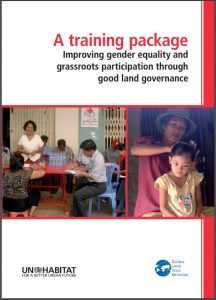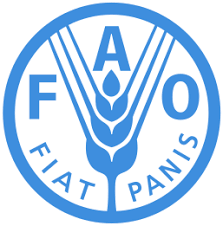FAO ANGOC VGGT Video
This video highlights the events of the training of trainers on "Increasing the use of the Voluntary Guidelines on the Responsible Governance of Tenure of Land, Fisheries and Forest (VGGT) among CSOs and Grassroots Organizations in the Philippines" held on 11-14 July 2016 in Tagaytay City, Philippines.
FAO VGGT Documentary
Sierra Leone's first documentary on Voluntary Guidelines on the Responsible Governance of Tenure of Land, Fisheries and Forests in the Context of National Food Security (VGGT) and the New Land Policy of Sierra Leone produced by Culture Radio 104.5 FM in cooperation with Food and Agriculture Organization of the United Nations (FAO).
PUTTING THE VOLUNTARY GUIDELINES ON TENURE INTO PRACTICE: A LEARNING GUIDE FOR CIVIL SOCIETY ORGANIZATIONS
This learning guide has been designed specifically to give civil society and grassroots organizations a deeper understanding of the Voluntary guidelines on the responsible governance of tenure of land, fisheries and forests in the context of national food security (VGGT) to enable the members of these organizations and their constituents to use the VGGT meaningfully and effectively to improve the governance of tenure in their respective countries.
Applications of the Voluntary Guidelines on the Responsible Governance of Tenure of Land, Fisheries and Forests in the Context of National Food Security (VGGT) in Urban and Peri-Urban Areas
This study aims to assess the applicability of the Voluntary Guidelines on the Responsible Governance of Tenure of Land, Fisheries and Forest in the Context of National Food Security (VGGT) in urban and peri-urban areas. The study also aims to facilitate decision-making on the next steps needed to ensure the application of the VGGT in urban and peri-urban areas, including informing the implementers on how they can anchor the VGGT in their activities, i.e. to apply or use the VGGT in their work in urban and peri-urban areas.
VGGT: Tenure considerations
Tenure cuts across many economic and social issues. Here we present a few of the key considerations that a company should internalize in order to act consistently with the intent of the VGGT.
Improving gender equality and grassroots participation through good land governance: A Training Package (Eng – 2010)
This training package provides an introduction to the important, complex, and sometimes daunting theme of improving land governance as a means to enhance gender equality and grassroots participation in land matters.
VGGT: People’s Manual on the Guidelines on Governance of Land, Fisheries and Forests
This publication is intended to support the use of the Voluntary Guidelines on the Responsible Governance of Tenure of Land, Fisheries and Forests in the Context of National Food Security. It is not intended to contradict the language of the Guidelines as endorsed by the Committee on World Food Security on 11 May 2012 nor the role of states in their implementation
VGGT: Fold-out User Guide to the analysis of governance, situations of human rights violations and the role of stakeholders in relation to land tenure, fisheries and forests, based on the Guidelines
This guide provides tools to understand the Voluntary Guidelines on the responsible Governance of Tenure, which sometimes uses technical language that is not easy to understand for those who are not used to reading this kind of text.
VGGT: Pilot project on the implementation of the OECD-FAO Guidance for Responsible Agricultural Supply Chains
To support the practical application of the OECD-FAO Guidance, in early 2018 the OECD and FAO launched an implementation pilot with over thirty companies and industry initiatives. The first stage of the pilot was a baseline survey to assess how companies and industry initiatives are implementing the OECD-FAO Guidance and other related international standards. This report presents the findings of the baseline assessment.
VGGT: OECD-FAO Guidance for Responsible Agricultural Supply Chains
Enterprises involved in agricultural supply chains can create employment, raise labour standards and bring the technology to increase agricultural production or reduce pollution. But their activities can also contribute to food insecurity by leading to the eviction of local communities from their lands. Child labour and abuses of migrant workers and women are regularly reported. The production of some agricultural commodities leads to soil degradation, water resource depletion and deforestation.
Land Legacy Issues - Guidance on Corporate Responsibility
This Guide aims to inform companies that hold land or purchase land directly from companies that hold land. It provides operational guidance for companies confronting “legacy land issues” and clarifies a company’s roles and responsibilities in dealing with legacy land issues in their existing holdings, while also providing direction on where to look for more detailed information and tools.











